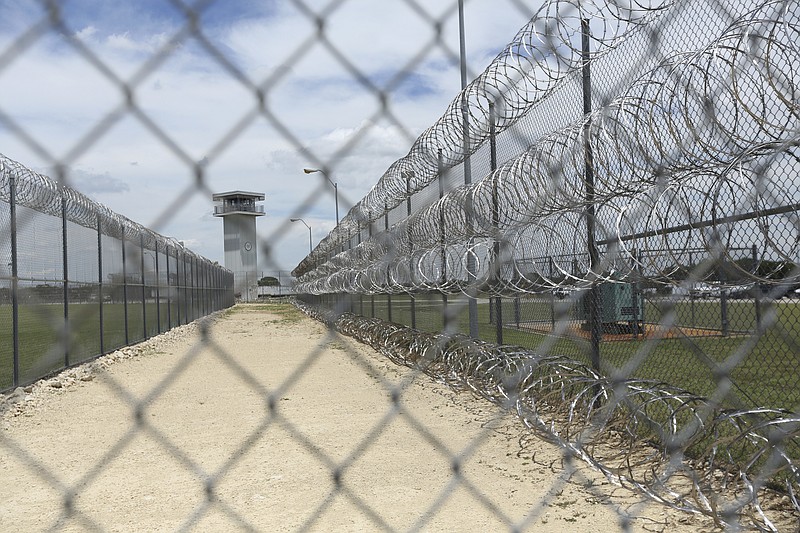MONTGOMERY, Ala. (AP) - Inmate homicides are on the rise in Alabama's prisons despite a national spotlight on its corrections system and an acknowledgement of the state's crisis behind bars, according to numbers from the Alabama Department of Corrections.
Prison system statistics show 11 inmate-on-inmate homicides in the fiscal year that ended Sept. 30. That is more than any recent year - including the previous year, with seven reported - according to prison system reports.
The numbers do not include recent deaths announced by the department and two inmates who died after altercations with officers in incidents that prompted internal investigations.
The rise in inmate homicides comes despite a national spotlight on Alabama prisons and state officials' promises for improvement. The U.S. Department of Justice this spring threatened to sue the state over its violent prison, and a federal judge ordered the state to add a many as 2,000 corrections officers.
Alabamians for Fair Justice, an advocacy group that includes inmate family members, told department officials earlier this month that the state has offered words, not substantial action, while deaths mount. The group sent a letter to the department seeking outside observers on a new internal task force on prison violence.
"Time and time again ADOC has committed to new forms of internal oversight, and new strategic plans. It has been in the midst of this heightened scrutiny that these latest deaths have occurred," the letter read.
Advocacy groups say the prison system may be undercounting inmate homicides. The Fair Justice Group says 27 inmates died from preventable deaths in 2019, including 13 homicides. The other deaths were from suicides, drug overdoses or altercations with officers.
"My question is when is somebody going to do something about it. How many more people have to die?" said Kenneth Glasgow, a spokesman with the organization. "It shows you the inhumane treatment that the Department of Justice reported. It shows you the inadequacy of the management that the Department of Justice reported."
In an emailed statement about the 2019 homicide numbers, Alabama Corrections Commissioner Jeff Dunn said the state is committed to improving safety for inmates and prison staff and said it "further emphasizes the critical importance of the immediate actions taken by the department including the creation of a new task force."
He said the task force will examine inmate-on-inmate violence, assess additional inmate rehabilitation programs and resources, and reexamine enhanced surveillance measures such as the possible use of body cameras by on-duty correctional officers.
"Prison inherently is a challenging environment, and no correctional facility in the country is completely devoid of danger. However, we are committed to doing everything within our power to improve staffing levels, training, procedures, rehabilitative programs and prison infrastructure to increase safety and decrease violence for both inmates and ADOC staff," Dunn said.
The U.S. Department of Justice threatened in April to sue the state over violence, saying the Alabama's prisons had the highest homicide rate in the nation.
The report also criticized the state for failing to accurately track homicides, raising the possibility that homicide numbers were underreported in previous years.
U.S. District Judge Myron Thompson, the judge hearing an ongoing lawsuit over prison mental health care, expressed concern about prison staffing numbers, including the creation of a new position of basic correctional officer, which has less training than a regular correctional officer. The department defended the position, saying it is helping fill the vacancies in state prisons.
In a federal court filing, the Department of Corrections reported that, from June through September, the number of corrections officers in the system declined from 1,081 to 1,040. The number of basic correctional officers during that time increased, from 56 to 182.
